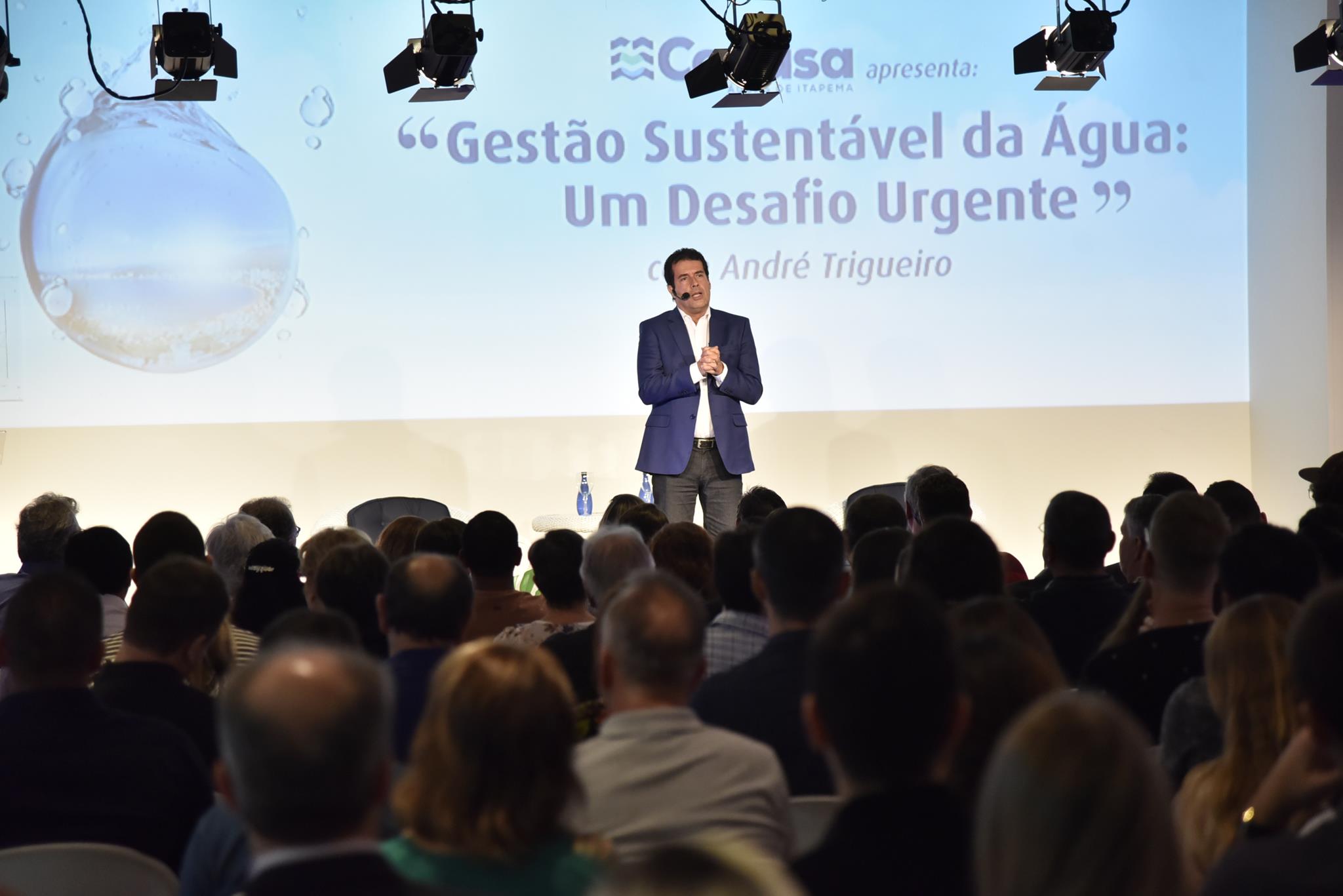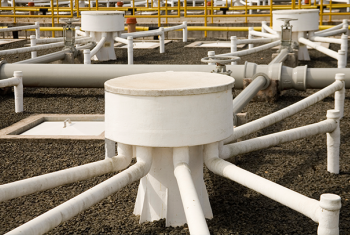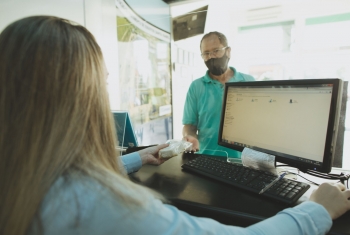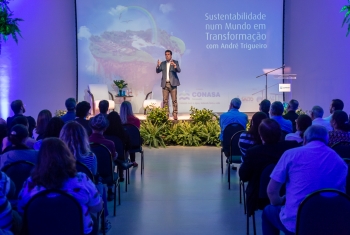A guest of Conasa Águas de Itapema for a lecture last Friday (22), World Water Day, journalist André Trigueiro talked about important attitudes to help us rethink basic sanitation in a country with 35 million people without potable water and 100 million without sewage treatment systems.
A guest of Conasa Águas de Itapema for a lecture last Friday (22), World Water Day, journalist André Trigueiro talked about important attitudes to help us rethink basic sanitation in a country with 35 million people without potable water and 100 million without sewage treatment systems.
The existence of a date to celebrate World Water Day worldwide shows, according to Trigueiro, the urgent and dramatic need to look at water and reflect on the lack of care and attention the world is given to this essential resource for our life. Major reference in environmental journalism in Brazil, the host of Cidades e Soluções ( Cities and Solutions) from Globo News, and highly respected for his commitment to sustainability issues, spoke for almost two hours to an audience of more than 300 people at the Itapema Plaza Resort.
With the theme “Water sustainable management: an urgent challenge”, the lecture raised issues of great importance to humankind which demands from citizens, authorities and leaders a sense of urgency towards the development of a new culture. Trigueiro reminded us of the 35 million Brazilians with no access to drinking water and the approximately 100 million Brazilians with no access to a sewage system, plus cases of counties with collection but no treatment.
“Brazil is unequal according to several indicators, including water that is asymmetrically distributed in our territory. The country has 12% of river superficial water in the world however, most of it, more than 70%, is concentrated in the Northern region, where a little less than 15% of the Brazilian population lives”, he stressed, showing that most Brazilians live under dramatic conditions trying to have access to potable water.
The journalist also mentioned studies conducted by Instituto Trata Brasil on the daily dumping in rivers of approximately 5 thousand Olympic-sized swimming pools filled with in natura sewage. He also alerted to the impact on public health and the destruction of the cities’ public buildings. As a solution, Trigueiro pointed out the need to create clear rules and regulatory benchmarks for water management. “Unfortunately, the scenario is still unclear and unsafe towards the investors’ position in this sector. They are long term investments that need clear and transparent parameters”, he recognized.
Residues in rivers
The amount of residues discarded inadequately was also another problem raised by Trigueiro." More than 2 million tons of waste are dumped into hydric bodies every year, enough to fill 30 stadiums the size of Maracanã. It’s impossible to think that this discharge of residues will have no impact on ourselves”, he stresses, frustrated by the lack of collective awareness. Trigueiro emphasizes that some attitudes must come from the citizens themselves such as the fight against waste. “We demand action from the government but we have to remember that we are the ones who can make a difference”, he adds.
Questioned about the desalination of seawater, the journalist agreed that the alternative is being used in some parts of the world; however, he reminded us of the problems caused by the use of this technology. “Besides consuming too much energy, they still do not know what to do with the salt coming from this process, since the amount surpasses consumption needs and the surplus cannot return to the sea, since it could interfere in the ecosystem, and it cannot stay inland either since it can sterilize the soil”.
A strong advocate of activism as a refreshing attitude towards life, the journalist motivates citizens to report on the destruction of water springs and demand action from public managers and urban plans with the development of systemic rules. Trigueiro also suggests that we think of innovative alternatives for the destination of effluent treatments as a by-product for agriculture. “For each solution, we have an impact. The lack of an in-depth discussion about water management and sanitation in Brazil is amazing. We still need targets, objectives to make advancements towards sustainable development”, he emphasizes.



